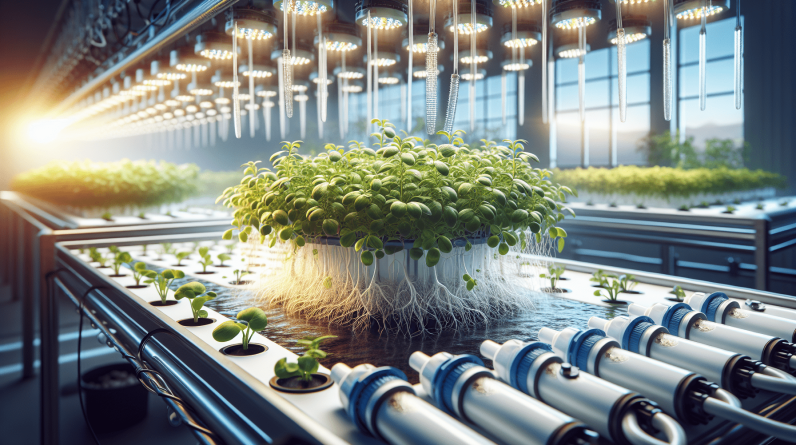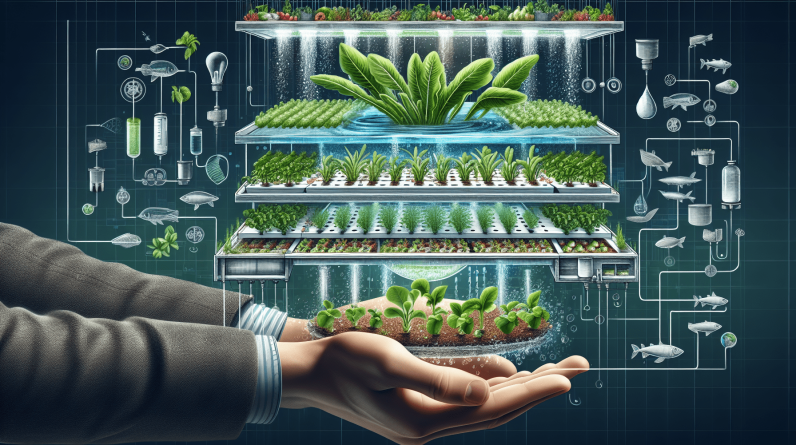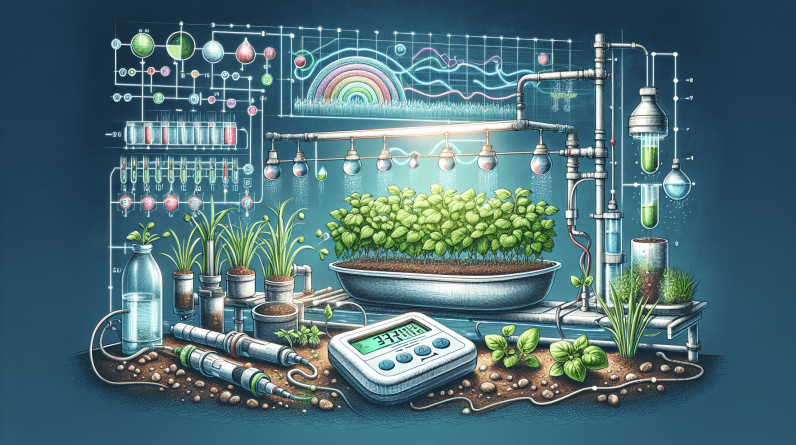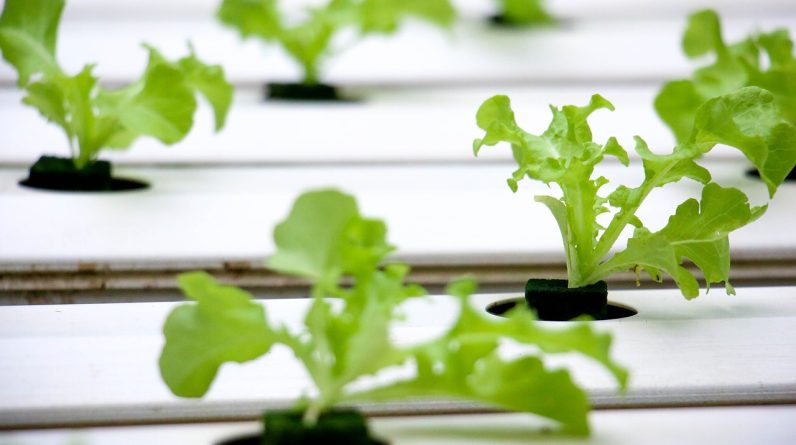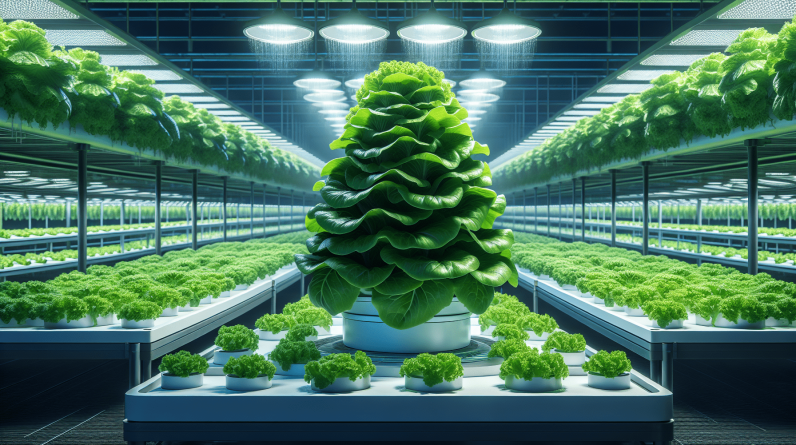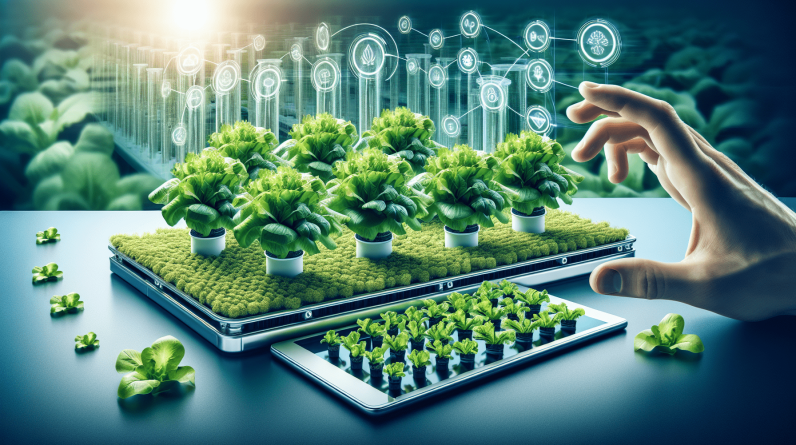
Can You Really Grow Organic Without Soil?
When it comes to organic gardening, soil is typically seen as a critical component. However, with advancements in technology, the concept of growing organic without soil has become a reality through hydroponic systems. This article will explore the world of organic hydroponics and address whether it is truly possible to grow organic crops without traditional soil.
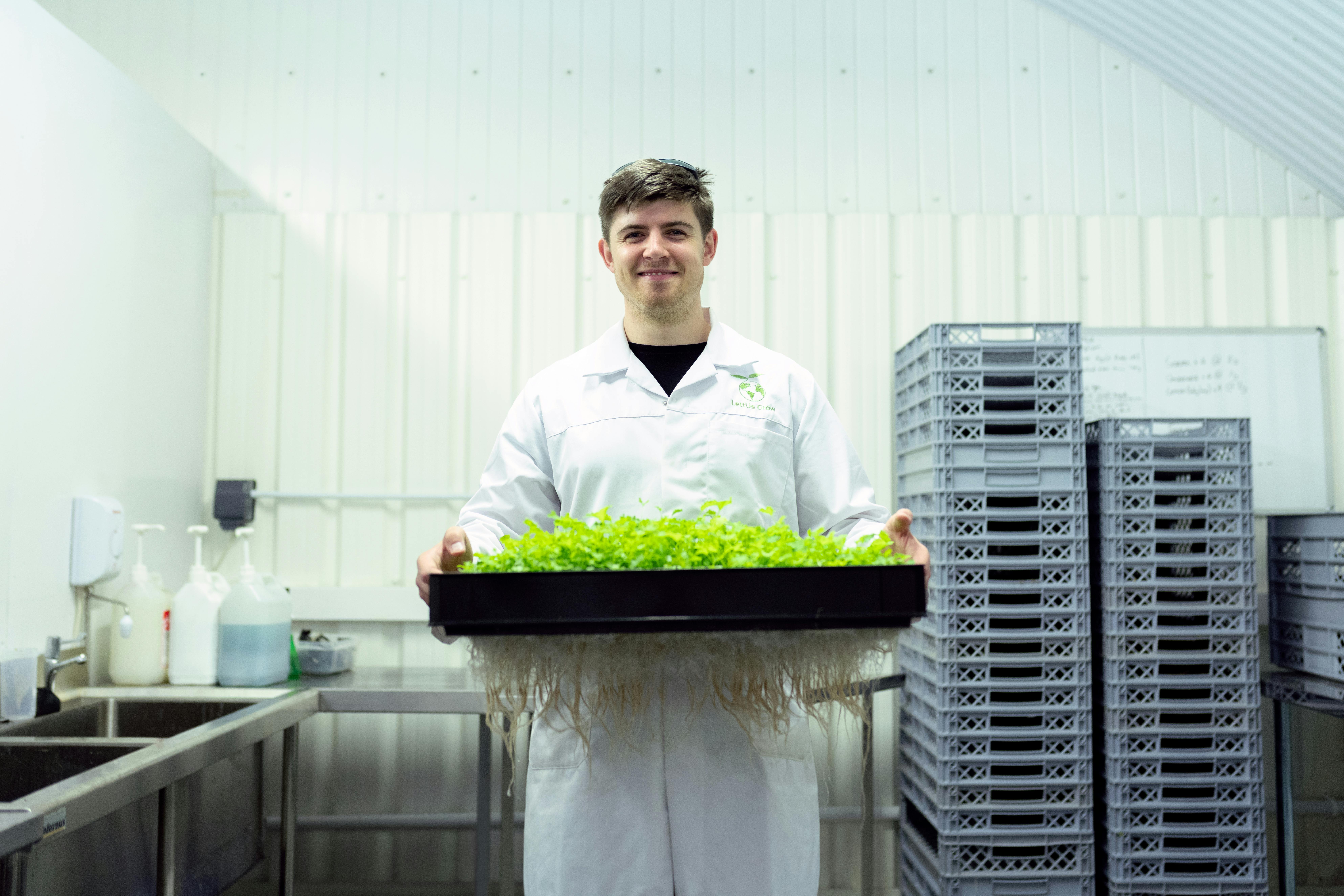
Understanding Hydroponics
Hydroponics is a soilless method of growing plants in a nutrient-rich solution that provides all the essential elements needed for healthy plant growth. By directly delivering these nutrients to the plant roots, hydroponic systems can significantly enhance plant development and production. ## Have you ever tried hydroponic gardening?
Hydroponic gardening involves the use of various systems, such as deep water culture, nutrient film technique, and aeroponics, to cultivate plants without soil. Each system has its unique features and benefits, but they all share the common goal of improving plant growth and yield. ## Which hydroponic system appeals to you the most and why?
Benefits of Organic Hydroponics
Employing organic practices in hydroponic systems offers several advantages, aligning with the principles of organic farming while harnessing the benefits of hydroponic technology. By using organic nutrients and pest control methods, organic hydroponics can produce high-quality, chemical-free crops in an environmentally sustainable manner. ## What do you think are the key benefits of organic hydroponics compared to traditional farming methods?
Sustainability and Resource Efficiency
One of the key benefits of organic hydroponics is its sustainability and resource efficiency. By eliminating soil from the equation, hydroponic systems reduce water usage significantly, utilizing up to 90% less water than traditional soil-based cultivation. This water-saving feature is crucial for regions facing water scarcity or drought conditions, making organic hydroponics a practical solution for sustainable agriculture. ## How do you think sustainable farming practices like organic hydroponics can help address global water scarcity issues?
Soil-Borne Disease Prevention
Another advantage of organic hydroponics is the prevention of soil-borne diseases that can threaten plant health and crop yields in traditional soil-based farming. By growing plants directly in a nutrient solution, hydroponic systems minimize the risk of soil-borne pathogens infecting plants, resulting in healthier crops and higher yields. This disease prevention aspect is particularly vital for organic farming, where chemical pesticides and fungicides are not used, relying instead on natural methods to protect plants. ## What are your thoughts on the importance of disease prevention in organic farming practices?
Organic Certification in Hydroponics
A common misconception about organic hydroponics is whether it can be certified as organic. The answer is yes, organic hydroponic systems can indeed obtain organic certification by adhering to the guidelines set by organic certifying bodies. This involves using organic nutrients, following sustainable practices, and avoiding synthetic chemicals to meet the strict standards of organic farming. ## Have you ever considered the certification process for organic hydroponics?
Organic Nutrients and Inputs
Organic hydroponics relies on organic nutrients and inputs to ensure that crops receive all the required elements for growth while maintaining organic integrity. These nutrients are derived from natural sources such as compost, seaweed, fish emulsion, and other organic matter, providing plants with essential minerals and trace elements without the use of synthetic chemicals. By choosing organic inputs, growers can cultivate crops that are truly organic, free from synthetic additives and harmful residues. ## How important do you think it is to use organic nutrients in hydroponic systems for organic certification?
Pest Management Strategies
In organic hydroponics, pest management strategies play a crucial role in maintaining plant health without relying on chemical pesticides. Integrated pest management (IPM) practices are commonly employed in organic hydroponic systems, which involve using beneficial insects, natural predators, physical barriers, and organic pest control solutions to manage pests effectively. By implementing these strategies, growers can protect their crops from pests while upholding organic principles and promoting ecological balance in the growing environment. ## What are your views on using natural pest control methods in organic hydroponic systems?

Comparing Organic Hydroponics and Traditional Organic Farming
While traditional organic farming and organic hydroponics share the common goal of sustainable and eco-friendly agriculture, they differ in certain aspects related to soil usage, resource efficiency, and crop production. Understanding these differences can help you decide which method aligns best with your farming goals and values. ## In what ways do you think organic hydroponics and traditional organic farming are similar and different?
Soil-Based vs. Soilless Cultivation
The most obvious distinction between traditional organic farming and organic hydroponics is the use of soil. Soil-based cultivation relies on the natural properties of soil to support plant growth, while hydroponic systems deliver nutrients directly to plant roots in a soilless environment. Both methods have their advantages and challenges, with soil-based farming offering natural soil enrichment and microbial diversity, and hydroponics providing precise nutrient delivery and water conservation benefits. ## What are your thoughts on the pros and cons of soil-based vs. soilless cultivation in organic farming?
Water Usage and Conservation
Water usage and conservation are significant factors to consider when comparing traditional organic farming with organic hydroponics. Soil-based farming typically requires more water due to evaporation, runoff, and water retention in the soil, whereas hydroponic systems use water more efficiently by delivering nutrients directly to plants without the need for soil. This difference in water usage makes organic hydroponics a viable option for regions with limited water resources or harsh environmental conditions, where water conservation is paramount. ## How important do you think water conservation is in sustainable agricultural practices like organic farming?
Crop Yield and Productivity
Crop yield and productivity are essential considerations when evaluating the effectiveness of organic farming methods. While traditional organic farming can produce high-quality crops with proper soil management and natural inputs, organic hydroponics often outperforms in terms of yield and production rate. The precise nutrient delivery, controlled environment, and year-round cultivation capabilities of hydroponic systems enable growers to harvest more crops in less time, resulting in higher productivity and profitability. ## How do you think crop yield and productivity impact the choice between traditional organic farming and organic hydroponics?
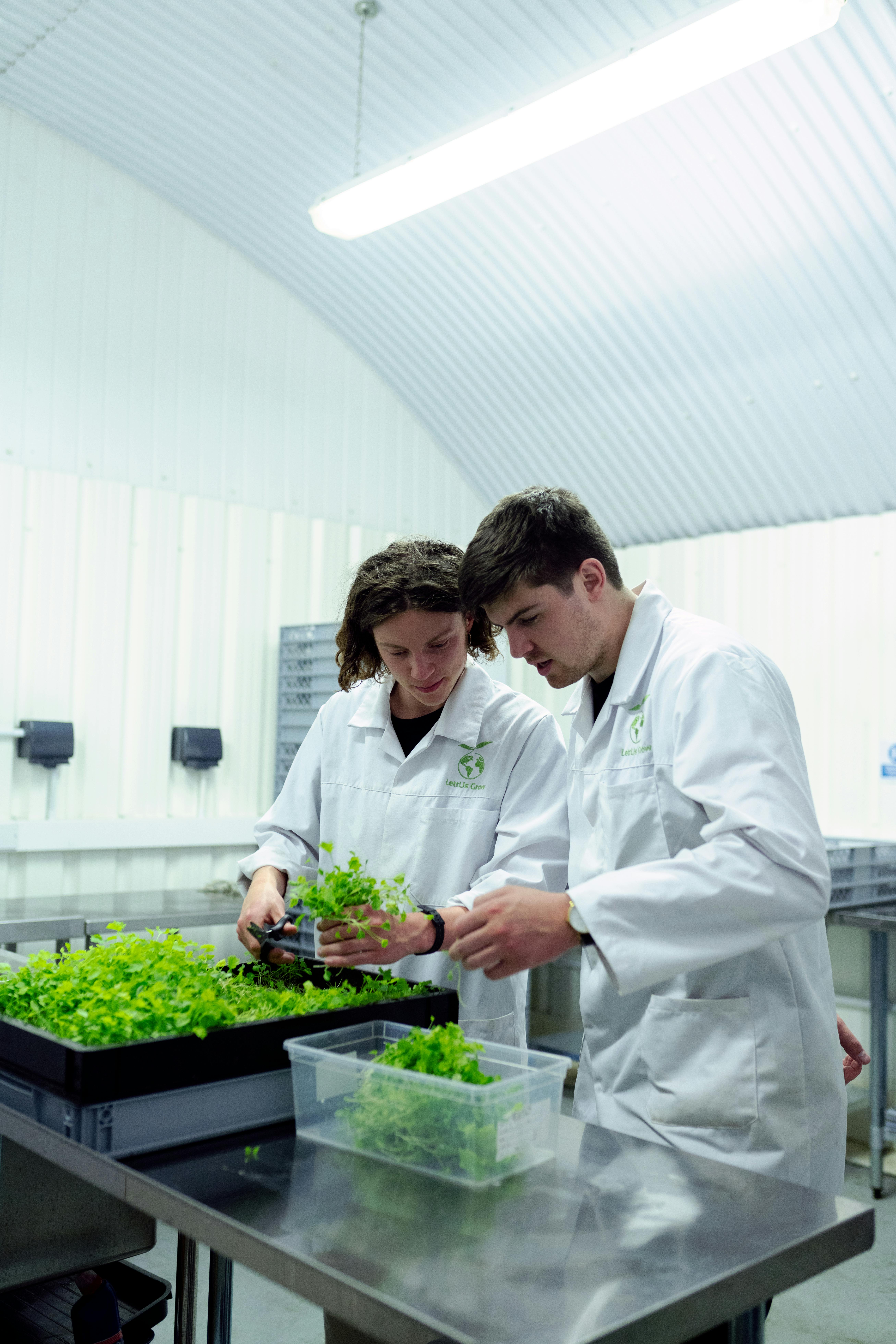
Getting Started with Organic Hydroponics
If you’re interested in exploring the world of organic hydroponics and growing organic crops without soil, getting started is easier than you might think. With the right knowledge, tools, and resources, you can establish your organic hydroponic system and enjoy the benefits of soilless cultivation. ## Have you ever considered trying your hand at organic hydroponics?
Essential Components of Organic Hydroponics
To begin your organic hydroponic journey, you’ll need to gather essential components such as a growing medium, nutrient solution, pH meter, water pump, reservoir, and lighting system. These components are crucial for creating an optimal growing environment for your plants and ensuring that they receive all the necessary nutrients and care. ## What components do you think are essential for setting up an organic hydroponic system?
Choosing Organic Seeds and Seedlings
Selecting organic seeds and seedlings is a vital step in organic hydroponic gardening, as it sets the foundation for growing healthy, organic crops. Organic seeds are free from synthetic chemicals and genetically modified organisms (GMOs), ensuring that your plants are truly organic from the start. By choosing organic seeds and seedlings, you can cultivate crops that meet organic standards and provide you with nutritious and safe harvests. ## How important do you think it is to use organic seeds in organic hydroponics?
Maintaining Organic Practices
Maintaining organic practices in your hydroponic system involves using organic nutrients, pest control methods, and sustainable techniques to promote plant health and environmental sustainability. By following organic principles and guidelines, you can ensure that your crops are organically grown and free from harmful chemicals or additives. This commitment to organic practices not only benefits your plants but also contributes to a healthier ecosystem and food system. ## How do you plan to maintain organic practices in your hydroponic garden?
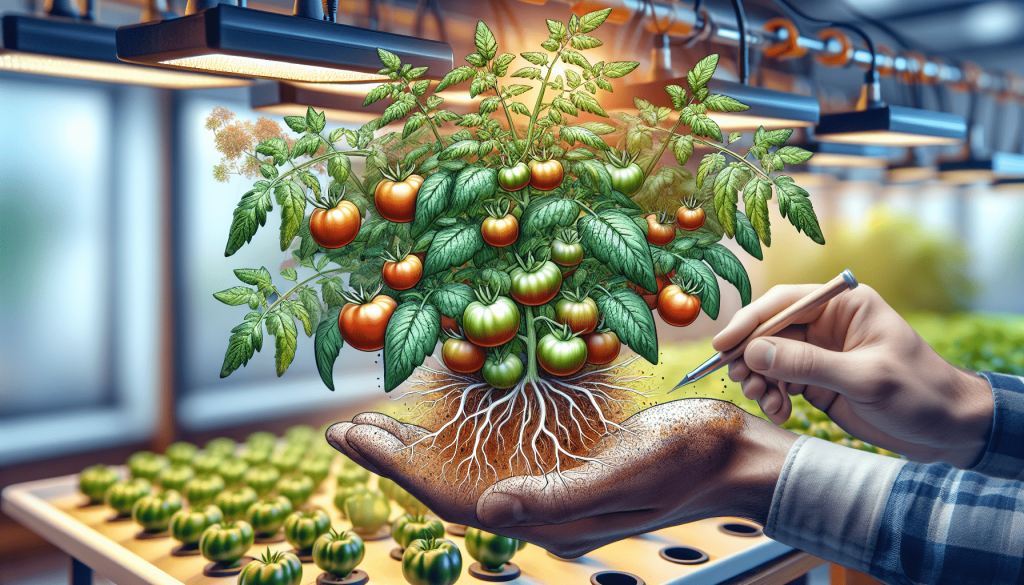
Conclusion
In conclusion, organic hydroponics offers a sustainable, efficient, and environmentally friendly approach to growing organic crops without traditional soil. By harnessing the benefits of hydroponic technology and organic farming practices, growers can cultivate high-quality, chemical-free crops while conserving water and reducing the risk of soil-borne diseases. Whether you’re new to organic gardening or looking to expand your farming methods, organic hydroponics presents an exciting opportunity to grow fresh, nutritious crops in a soilless environment. ## What steps will you take to incorporate organic hydroponics into your gardening practices?





